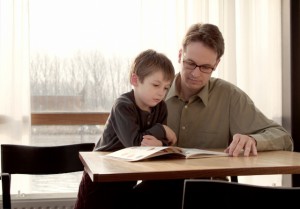 NACD now has an extensive recommended reading list that I want to share with you. When reviewing the book list, please keep in mind that there are various ways to experience, enjoy, and learn from a book. Books should be viewed as a from of entertainment; a resource for knowledge; a means by which to develop vocabulary, build the ability to process, visualize, conceptualize, and understand information, and a means to learn about history, people, and life. Through books we can learn about fantasy, learn to imagine, dream, and create. Without the benefit of books it is very difficult to learn and understand the human condition. We can learn from the lives and experiences of others and develop a deeper understanding not only of others, but ourselves. We can gain these benefits not only by reading these books ourselves, but also through the experience of others reading them to us, from the shared experience through book clubs, from shared reading, and even from audio books. As you review this list and pick books for your child (or help them pick books), remember these options. If you want the child to enjoy a book that they are going to read themselves, you don’t want the vocabulary to be too challenging. You want them to be able to read and move through the book relatively quickly. If the book is a bit more challenging, consider shared reading. With shared reading you read a paragraph or a page, and your child reads the next. With shared reading you can help your child with any new or difficult words, and with your reading with your child you can keep the pace moving fast enough to keep it interesting. If the book is even more difficult, simply read the book to your child, or if time does not permit, see if you can find an audiobook version. Always try to encourage your child to have a dictionary handy, or preferably one of the new app dictionaries, that can give your child the pronunciation of the word as well as the definition. The best way to teach this is by example.
NACD now has an extensive recommended reading list that I want to share with you. When reviewing the book list, please keep in mind that there are various ways to experience, enjoy, and learn from a book. Books should be viewed as a from of entertainment; a resource for knowledge; a means by which to develop vocabulary, build the ability to process, visualize, conceptualize, and understand information, and a means to learn about history, people, and life. Through books we can learn about fantasy, learn to imagine, dream, and create. Without the benefit of books it is very difficult to learn and understand the human condition. We can learn from the lives and experiences of others and develop a deeper understanding not only of others, but ourselves. We can gain these benefits not only by reading these books ourselves, but also through the experience of others reading them to us, from the shared experience through book clubs, from shared reading, and even from audio books. As you review this list and pick books for your child (or help them pick books), remember these options. If you want the child to enjoy a book that they are going to read themselves, you don’t want the vocabulary to be too challenging. You want them to be able to read and move through the book relatively quickly. If the book is a bit more challenging, consider shared reading. With shared reading you read a paragraph or a page, and your child reads the next. With shared reading you can help your child with any new or difficult words, and with your reading with your child you can keep the pace moving fast enough to keep it interesting. If the book is even more difficult, simply read the book to your child, or if time does not permit, see if you can find an audiobook version. Always try to encourage your child to have a dictionary handy, or preferably one of the new app dictionaries, that can give your child the pronunciation of the word as well as the definition. The best way to teach this is by example.
Experience books with your children and give them the wonderful gift of learning to love reading and love learning.
